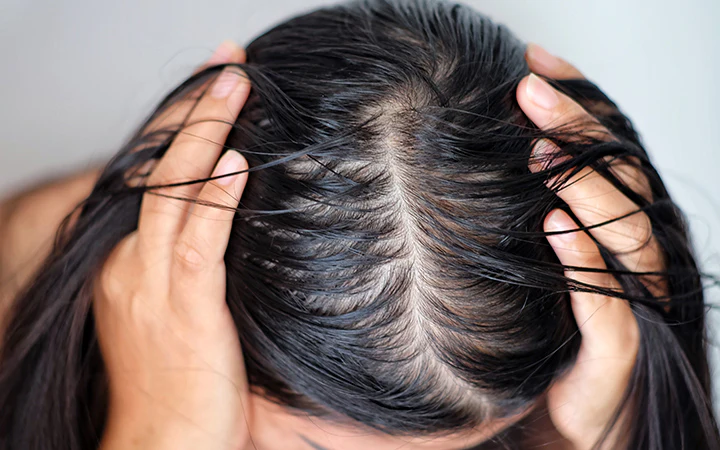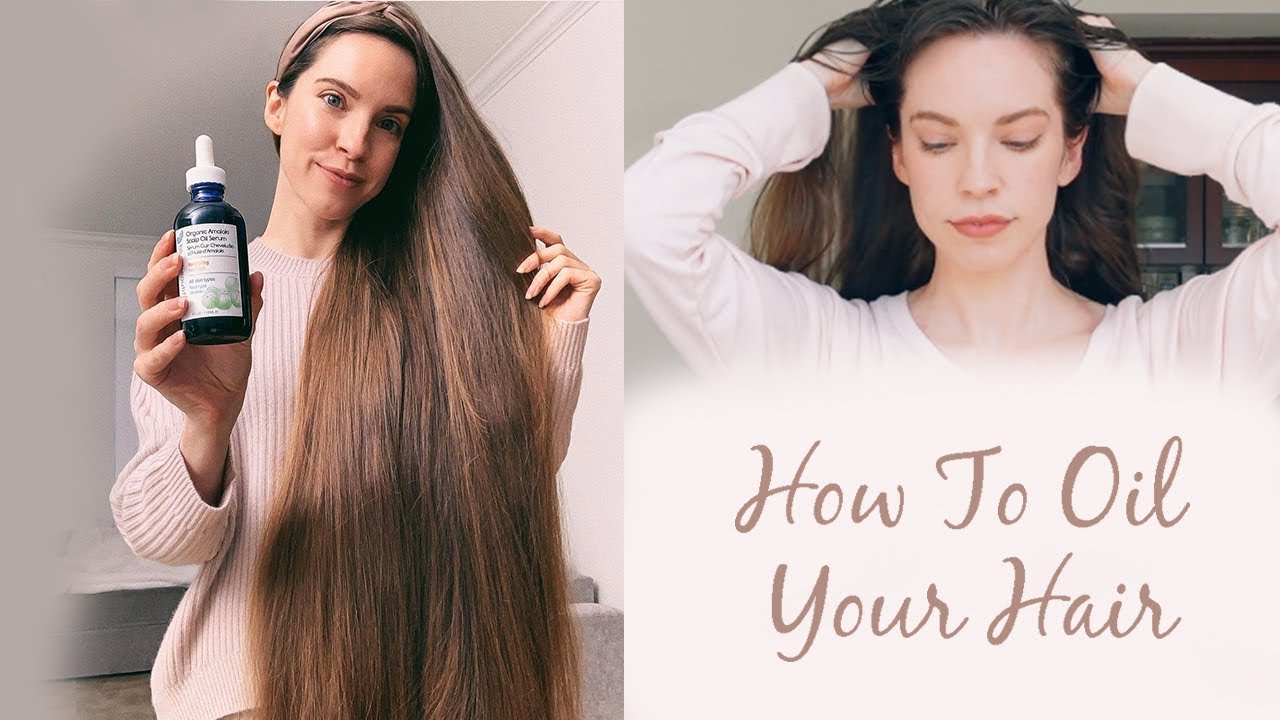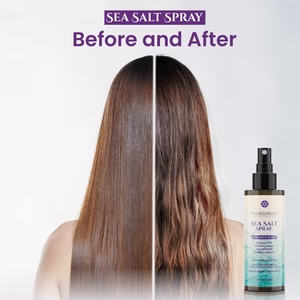Tired of the grease? Discover Why Your Hair Gets Oily Fast and What to Do About It
Struggling with greasy hair? You’re Not Alone.
If you’re battling greasy hair just a day or two after washing, rest assured, you’re not alone. Many people find themselves in this oily hair problem, desperately seeking solutions to extend that fresh, just-washed feeling. But before you try every product on the shelf, it’s crucial to understand what’s causing your hair to turn oily so quickly.
Oily hair is a common issue that can leave you less confident. It’s not just about appearance; managing oily hair can be a frustrating daily chore. In this post, we’ll explore why your hair might get oily faster than you’d like and provide some practical tips to help keep your locks looking fresh for longer. Whether you’re a health-conscious individual or a beauty enthusiast, this guide will cater to your needs.
Understanding Hair Oil: The Role of Sebum Production
What is Sebum?
Sebum is a natural oil produced by the sebaceous glands located on the scalp. This oily substance plays a vital role in maintaining the health of your hair and scalp. It acts as a natural conditioner, helping to lock in moisture and protecting your hair from becoming dry and brittle. Think of it as nature’s way of keeping your hair healthy and shiny.
While sebum is essential, too much of it can leave hair looking greasy and feeling heavy. Balancing sebum production is vital to achieving healthy hair not weighed down by excess oil.
The Purpose of Sebum
Sebum’s primary purpose is to moisturize and protect the scalp and hair. It forms a protective barrier that shields hair from environmental damage, such as pollution and sun exposure. Sebum also prevents water loss, keeps hair hydrated, and promotes elasticity. Without it, hair could become prone to breakage and split ends.
However, sebum production varies among individuals, and finding the right balance is crucial. Some oil is necessary to maintain healthy hair, but excess production can lead to oily hair woes.
Overproduction of Sebum
Excessive sebum production is often the culprit behind oily hair. When your scalp produces more oil than necessary, it can build up on your hair and scalp, making it appear greasy. This overproduction can result from various factors, including genetics, hormonal changes, and lifestyle habits. Identifying the cause of excess sebum production is the first step toward managing oily hair effectively.
Causes of Fast-Oiling Hair
Genetics
Your genes play a significant role in determining how much sebum your scalp produces. If oily hair runs in your family, you may be genetically predisposed to producing more sebum. While you can’t change your genetics, understanding that they contribute to oily hair can help you tailor your hair care routine accordingly.
Hormonal Changes
Hormones significantly impact sebum production. Hormonal fluctuations can lead to increased oil production during puberty, pregnancy, menstruation, or conditions like Polycystic Ovary Syndrome (PCOS). These changes can trigger your sebaceous glands to overdrive, resulting in greasy hair.
Hormonal balance is critical for healthy hair. If you suspect hormones are causing your oily hair, it might be worth consulting a healthcare professional for guidance.
Over-Washing
Ironically, frequent washing can exacerbate oily hair problems. Washing your hair too often strips the scalp of its natural oils, leading the sebaceous glands to compensate by producing even more oil. It’s a vicious cycle that can be hard to break.
To prevent the overproduction of sebum, try spacing out your washes. Allow your scalp time to regulate its oil production naturally, aiming to wash every 2–3 days.
Wrong Hair Products
Using the wrong shampoo or conditioner can contribute to oily hair. Products that are too heavy or not suited to your hair type can weigh your hair down and make it appear oily. Opt for lightweight, oil-balancing formulas that cleanse without over-drying.
It’s crucial to read labels and choose products for oily hair. Look for clarifying shampoos that gently remove excess oil without stripping your hair of essential moisture.
Diet and Lifestyle
What you eat and how you live can also affect your hair’s oiliness. Diets high in oily or processed foods, stress, and lack of sleep can contribute to greasy hair. These factors can disrupt your body’s natural balance, leading to increased sebum production.
A balanced diet rich in fruits, vegetables, and healthy fats can promote a healthier scalp. Also, managing stress through meditation or exercise can help regulate oil production.
Touching Your Hair Frequently
Constantly touching or brushing your hair can transfer oils from your hands to your hair. This habit can stimulate the scalp to produce more oil, leaving your hair greasy. It’s best to avoid excessive contact with your hair to keep it looking fresh.
When styling, use tools like combs or brushes instead of your fingers, and try to minimize unnecessary touching throughout the day.
How to Manage and Prevent Oily Hair
Use the Right Shampoo
Selecting the right shampoo is crucial for managing oily hair. Opt for clarifying or oil-balancing shampoos that target excess oil without over-drying your locks. These shampoos cleanse the scalp, removing buildup and leaving your hair refreshed.
Finding the perfect product for your hair may take some trial and error, but stick with it to maintain a healthy balance once you do.
Washing Frequency
Avoid the temptation to wash your hair daily. Instead, aim every 2–3 days to allow your scalp to regulate sebum production naturally. This routine helps prevent oil overproduction and keeps your hair looking cleaner for longer.
If your hair feels greasy between washes, use a dry shampoo to absorb excess oil and add volume.
Conditioner Placement
When applying conditioner, focus on the ends of your hair and avoid the roots. This technique prevents adding extra moisture where it’s not needed, helping to reduce oiliness on the scalp.
A conditioner is essential for maintaining healthy hair, but using it correctly can make a significant difference in managing oily hair.
Dry Shampoo
Dry shampoo is a lifesaver for those with oily hair. It absorbs excess oil and adds volume, extending the time between washes. Choose a formula that matches your hair color to avoid any visible residue.
Incorporate dry shampoo into your hair care routine. Apply it to the roots and brush through to distribute it evenly.
Diet and Hydration
A balanced diet and proper hydration are vital for maintaining a healthy scalp. Incorporate more fruits, vegetables, and healthy fats into your meals while staying hydrated throughout the day. These habits support overall hair health and can help control oil production.
Drinking water benefits your skin and body and promotes a healthy scalp and hair.
Scalp Treatments
Consider using gentle exfoliating treatments to keep your scalp healthy and reduce buildup. These treatments remove dead skin cells and excess oil, promoting a balanced scalp environment.
Look for products with natural ingredients that soothe and nourish the scalp while effectively cleansing and refreshing.
When to See a Dermatologist
Signs of a Medical Issue
If you experience persistent or extreme oiliness that isn’t helped by home remedies, it could indicate a scalp condition like seborrheic dermatitis or hormonal imbalances. In such cases, consulting a dermatologist is advisable.
A dermatologist can assess your condition and recommend appropriate treatments to address underlying issues.
Professional Solutions
Dermatologists can offer prescription treatments or specialized therapies if needed. These solutions may include medicated shampoos or topical treatments targeting specific oil production conditions.
Seeking professional advice ensures you receive personalized care and effective solutions for managing oily hair.
Recap and Final Thoughts
In conclusion, oily hair can be caused by a combination of factors, including genetics, hormones, over-washing, and lifestyle habits. Understanding the underlying reasons for your hair’s oiliness allows you to take targeted steps toward managing it effectively.
With the proper hair care routine and lifestyle adjustments, you can achieve fresher, cleaner hair that feels healthy and vibrant. Don’t hesitate to experiment with different products and techniques until you find what works best for you.
Share your experiences and tips for managing oily hair in the comments below! Your insights could help others in their quest for grease-free locks.



